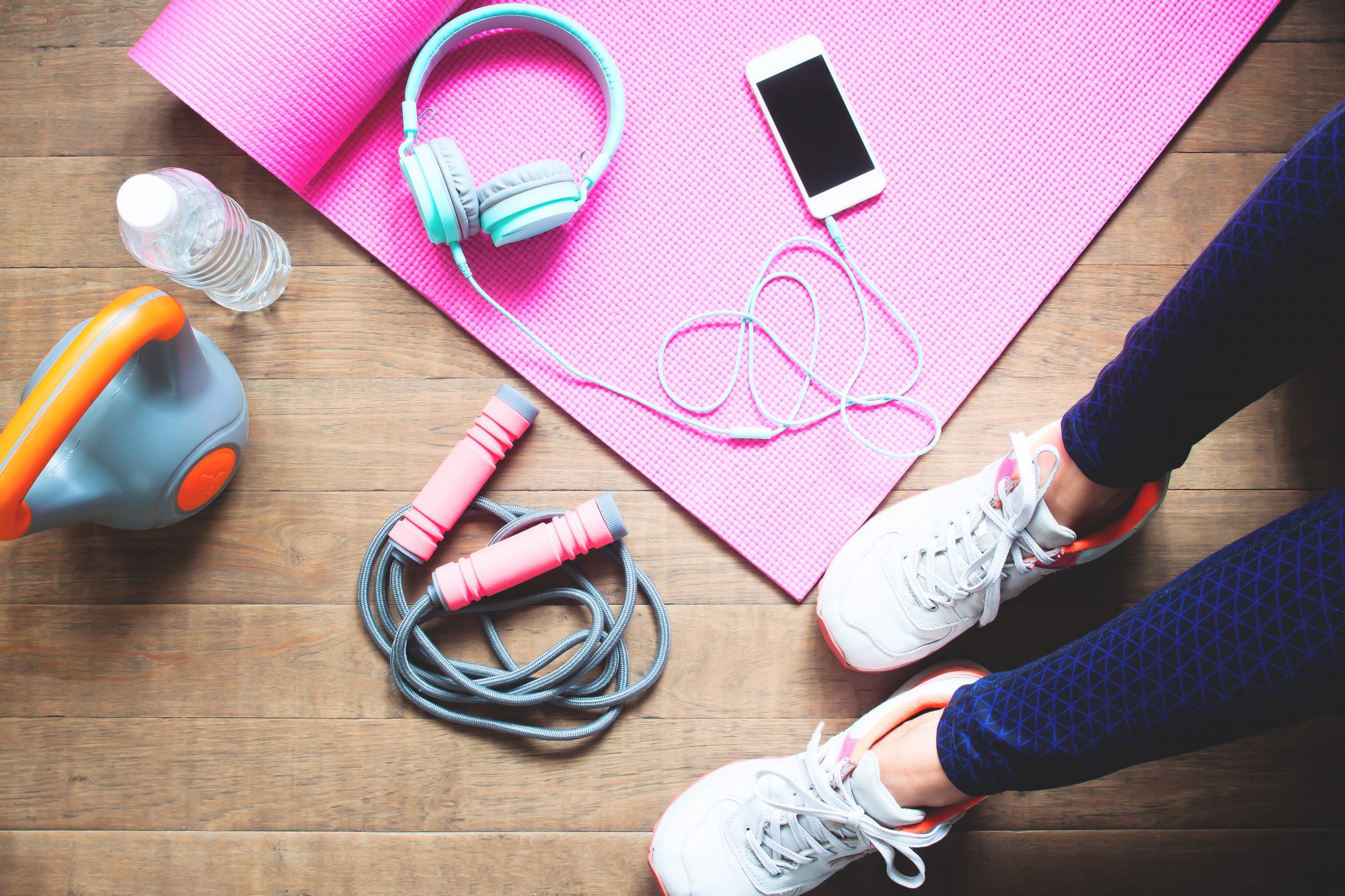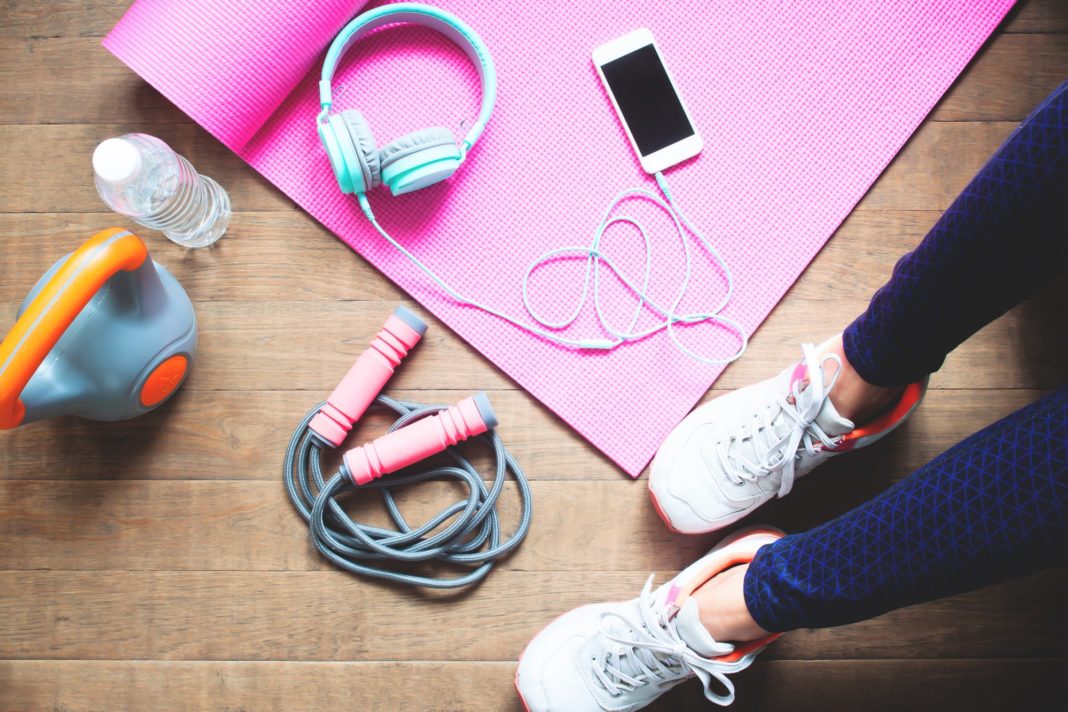
My patient hops onto the table in the middle of the busy physical therapy gym. She's a track star who just made All State as a high school sophomore. I'm seeing her for hip flexor tendonitis, an overuse injury. "Congratulations on the new record," I say as I massage her hip.
I lower my voice as I ask the question I've been wanting to ask, "Do you ever leak when you run?"
Common cultural narratives typically characterize urinary incontinence or leakage as a plague that only impacts people postpartum. The research, however, tells a different story. A study published in 2021 looked at the data from nine different studies that focused on urinary incontinence in female athletes under the age of 19. It found that an average of about 49 percent of female adolescent athletes experienced urinary incontinence. It's distressing enough to think that approximately half of these young athletes participating in sports are leaking urine. It's worse when you realize that 87 percent of them will not mention it to their coaches.
A young woman named Taylor told me that despite leaking during gymnastics practice starting at 16 years old, she didn't mention it to anyone except her doctor—when she was 21. Others have had similar experiences. While many of them eventually mentioned it to their parents, it was only after suffering silently on their own, worried that something was wrong with them. More open conversations about leaking during sports performance could help to shrink the stigma and empower people at any age to find help.
Causes of Urinary Incontinence in Teen Athletes
Stress urinary incontinence, the leaking that occurs with exertion, can happen regardless of age. In order to stay dry during exercise, we rely on our pelvic floor muscles to generate tension that helps to hold our urethra closed, keeping urine inside. The pelvic floor is an often overlooked part of our core system, which includes our deep abdominal muscles, our back muscles, and our diaphragm (the muscle we use to breathe). Our core has important functions for the strength and stability of our entire body. If the pelvic floor isn't working efficiently in the system, it can't do its job when it's needed most, during high-impact exercise. High-impact sports that include running, landing, or jumping are the most likely to cause leaking.
Urine Leakage Can Impact Sports Participation
As a pelvic floor physical therapist, I've seen the way that urinary leakage causes people to change their lives in big and small ways. People give up running long distances, stop engaging with their gym community, only wear black leggings, and stay far away from trampolines. We can miss out on life's fun and playful things if we're worried about holding our bladders.
My goal as a physical therapist is to get someone who is leaking back into the movement they love with the people they love. Once the leaking has improved, my patients often wish they had known pelvic floor physical therapy could help with incontinence sooner. There's a sadness that comes with knowing how much time was spent avoiding beloved sports and activities. I feel a similar sadness thinking about how so many adolescents are choosing their extracurriculars around activities that won't make them pee their pants or the ways they are trying to deal with the issue. Eighteen-year-old Olivia told me, "The leakage didn't change my sports activities in terms of participation, but I did have to wear a maxi pad all the time and that was embarrassing."
How to Help Teen Athletes With Urine Leakage
Ask about it
Urinary leakage in adolescent athletes is very common. Even more common is their hesitancy to talk about it with their coaches and parents out of embarrassment. Asking without judgment can help to normalize the experience and let your teen know you're here to help and that they're not alone.
Promote cross training and general strength building
There is more and more pressure for young athletes to pick a single sport at earlier ages. With earlier skill specialization and less variability in movement, there may be muscle groups that aren't getting their fair share of work or strength. Growth spurts involve bones rapidly changing in size. Sometimes muscles need time and support in keeping up. The pelvic floor doesn't work in isolation—making sure that its teammates (the abdominal muscles, glutes, back muscles, and inner thigh muscles) are all strong and working well together can make a significant difference in leaking.
See a pelvic floor physical therapist
Barring any infection or abnormality of the urinary tract, lack of coordination of the pelvic floor muscles is the most likely culprit in leaking for teen athletes. Working with a pelvic floor physical therapist to promote whole body strength and coordination can help. The same way we rely on coaches for information about our form when we strike out at the plate, we need coaching when it comes to leaking. It's possible to play hard without peeing.
The Bottom Line
Urinary leakage can be embarrassing and scary for teens. Despite how frequently it occurs, it can feel isolating, particularly when young people feel they need to change their sports participation to stay dry. Opening up a conversation, normalizing their experience, supporting their athletic endeavors through full body strength building, and engaging the help of a pro can all help empower athletes to find a path forward.

































